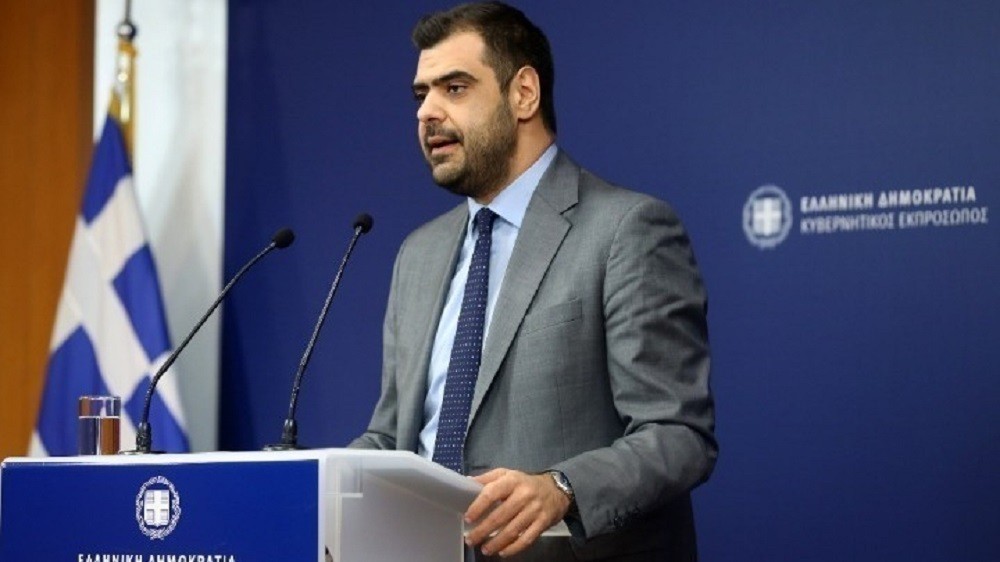
#Tags:
ProgramgovernmentPM Alexis TsiprasPrespes agreementminimum wageratificationinternational capital marketsEveryone is starting to see that Greece is a different country, PM Tsipras states
The government’s goal was that by October 2019, Greeks will be able to clearly compare Greece today with the country delivered by the governments of the old political system four years ago, Prime Minister Alexis Tsipras said, while addressing a cabinet meeting on Monday.
“Everyone has now started to see that Greece is a different country,” the prime minister said, “in which the terms and conditions are being created to leave the crisis behind us…a country that plays a leading role in the surrounding region, the Balkans, the Southeastern Mediterranean and Europe.”
The country was now preparing to take another historic step, Tsipras added amid applause, calling on the cabinet to approve his proposal to increase the minimum wage to 650 euros a month.
Referring to the ratification of the Prespes Agreement, he noted that it was a political and historical event that marks “the resolution of a historic outstanding issue with our neighbours, with North Macedonia. The passage to a new era of cooperation, solidarity and friendship in the Balkans. The defeat of nationalism, of nationalisms on both sides of the border, which is at the same time a victory for the forces that do not intend to leave the future of the two people to the merchants of hatred and peddlers of patriotism.”
The prime minister called Monday’s cabinet meeting ‘special’ for many different reasons. During his opening speech, he said that it was the first meeting held after parliament reaffirmed its confidence in the government “to proceed and complete a very important, for the Greek people, work with clear horizon, which is the end of the government’s term according to the Constitution, namely in autumn 2019”.
Tsipras noted that a majority of the parliamentary deputies cast a vote of confidence in the government, recognising that the country and the economy need political stability and that “the huge institutional and social changes we have ahead of us must be implemented by a government that has proved it knows how and is able to do this.”
This was “the government that led the country out of the regime of the programmes, the governement that managed to restore confidence and stability to the Greek economy and which had adjusted the public debt, making it sustainable and creating the conditions for its smooth refinancing,” he noted.
Tsipras also told cabinet ministers that Greece on Monday announced the issue of five-year syndicated bond, launching its return to the international capital markets.
Noting the government’s significant successes in the labour market, the prime minister said that the completion of the adjustment programmes and the exit from memorandums “gives us the ability to now safely implement specific policies that will give real substance to our strategic aims.”
Among these successes, Tsipras listed the effort to stamp out undeclared employment, which was reduced from 20 pct in 2014 to 9 pct in 2018, restoring collective labour bargaining, which had led to wage increases for 100,000 employees, as well as the success in lowering unemployment, from 27 pct in 2014 to 18.3 pct at present.
While most will welcome the increase in the basic wage, Tsipras said, some will not view it as a good thing – including those that saw the crisis as an opportunity to increase inequality and boost their profits, and the “neoliberals” who believe that crushing labour is a condition for growth.
“Our reply to them is that crushing labour is not the path to sustainable growth and to boost the economy. On the contrary, it is a proven recipe for default,” the prime minister said, noting that every crisis in the history of capitalism occurred when inequality had reached its peak.
“We do not believe the false promises of so-called experts, who tells us that a condition for growth is to lower wages, because we know from theory but also from experience that the reality shows that the opposite occurs, that an increase in wages is the necessary condition and growth is the result.”
The government’s decision will not only provide relief and hope to the 600,000 workers directly affected by the increase and the 280,000 who stand to gain from an increase in benefits linked to the minimum wage, but also create the prospect to further strengthen equitable development, Tsipras added.
Source: ANA-MPA
Greece returns to international capital markets, announcing five-year bond issue

